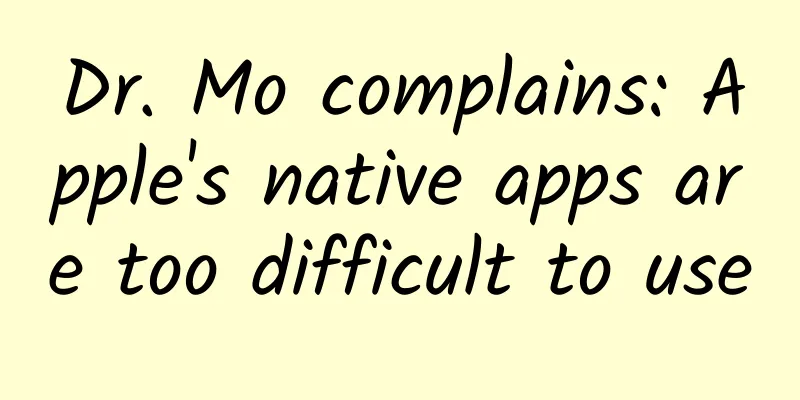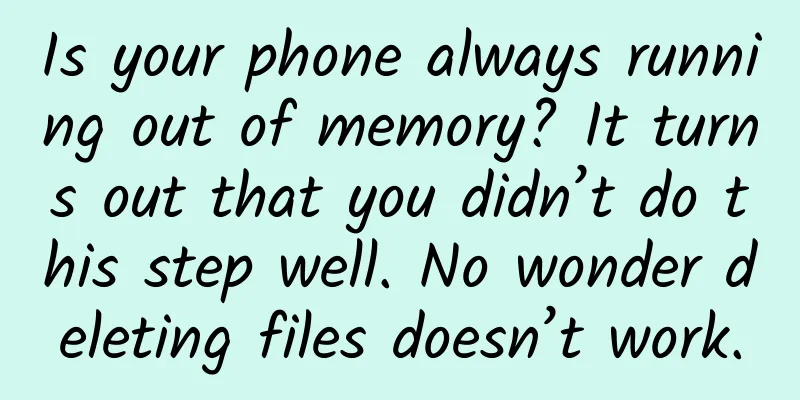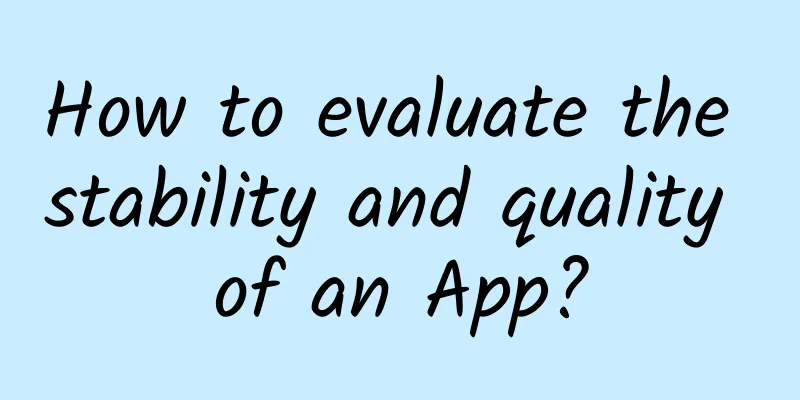Dr. Mo complains: Apple's native apps are too difficult to use

|
The Verge, a US technology blog, published a commentary by Walter Mossberg, a well-known technology media person, on Wednesday. Dr. Mossberg believes that the quality of Apple's core applications such as iTunes, Mail, Photos and iCloud is declining, which will bring risks to the overall experience of Apple products. In the eyes of the outside world, Apple is a great hardware developer. For example, many reviewers believe that Apple devices are the best products available on the market. I have also recommended that Apple's most important product, the iPhone, is the best smartphone on the market. At The Verge, everyone holds the same view. However, developing these products requires more than just metal, glass and silicon. Apple's built-in software is an important part of the overall experience, and it has been so since the first Mac was launched in 1984. Whether it is an operating system or a core application, an important point that users and reviewers prefer Apple products is the software. Apple software is powerful, reliable and easy to use. As Steve Jobs once said: "It works!" However, in the past few years, I have noticed that the quality and reliability of Apple's core applications are declining, whether on the iOS mobile platform or the OS X desktop platform. Apple's focus seems to be gradually moving away from its core software products and focusing more on new dreams, such as smart watches and electric cars. Let me be clear: Apple's core applications are still good enough in most cases. Otherwise, I can't recommend Apple's hardware. I like iMessage, the new Notes application, Apple Pay, Touch ID fingerprint authentication, Safari browser, AirPlay and many other Apple products. In terms of core applications, competitors still have a gap with Apple. However, there are more and more exceptions. Apple's slogan is "It just works", and Jobs and his successor Tim Cook have always claimed that Apple's business is to develop "excellent products". Therefore, we often judge Apple based on high standards. Apple's advantage is that the company's software and hardware are highly integrated. Therefore, if the software is no longer excellent, the hardware will also be dragged down. In response to my question, Apple said: "We have dedicated software teams covering multiple platforms. Our work in this area remains as strong as ever." Apple said that these teams are optimizing core applications every year, but the focus each year is different. Apple has had its share of software failures, like MobileMe, iTunes Ping, and the first version of Apple Maps. Apple News has also been so-so so far, in my opinion. But I'm here to talk about the more familiar apps, like Mail, Photos, iTunes, and iCloud. In some ways, they don't meet Apple's high standards. Sometimes the problems are on iOS, sometimes on OS X, and sometimes on both platforms. 1. iTunes on the Desktop Apple's iTunes was once the most acclaimed product in the world. iTunes was a combined digital music store and player that synced with iPods, supported Macs and Windows, and was fast and stable. Apple overhauled iTunes in 2012. For a while, it did make iTunes better. But then, iTunes became bloated, complicated, and difficult to use again. The recent integration of the Apple Music streaming service has made the situation worse. The other day, I tried to sync two iPads with iTunes, but iTunes was slow to recognize the iPads. On my three Macs, iTunes is slow to run almost all tasks. The computers were manufactured between 2013 and 2015. Apple needs to disassemble iTunes. It has already done so on iOS. On iOS, iTunes is just a digital and content store, and each type of content, such as music, video and podcasts, has a separate playback app. Apple admits that the company has discussed this issue. However, so far, Apple has maintained a bloated iTunes on the desktop, and has only tried to make it faster and less problematic through optimization. 2. Mail Apple's mail apps on the desktop and mobile were once very advanced, but recently, despite adding some nice features, I have found that these apps have begun to slow down and become less reliable. This is particularly true for Gmail mailboxes. In my actual experience, Apple Mail is slow to send and receive Gmail emails on both platforms, whether for personal or business accounts. Some emails even get lost and cannot be found by searching. Like many other Gmail users, I have been forced to switch to Google's Gmail app or web version of the service. Apple said this is not a problem that it or other email app manufacturers can control. Gmail uses nonstandard technology to give Google's apps and websites a speed advantage. (Google has explained this differently in the past.) The problem isn't just Gmail. You can find many other mail apps in iOS and OS X. These apps can help categorize emails or intelligently filter out certain types of emails. Apple hasn't gotten into such technology, and the improvements it has made are just gestures. Apple's spam filtering system used to be better than its competitors, but it has recently started to have problems. The mobile version of Apple's Mail app still can't send group emails, but you can do that through Apple's Contacts app. (Apple says this is intentional because groups on the iPhone are not intended for use with the Mail app.) 3. Photos Last year, the Photos app on the Mac platform received a major upgrade. At the time, Apple announced the retirement of the outdated iPhoto and replaced it with a new Photos app. The new app is faster and has a cleaner interface. However, based on my experience, the optional iCloud Photo Library service on the Mac platform can significantly improve the experience. On my iPhone and iPad, the Photos app is fast and displays accurately, but on the desktop platform, the app is slow. It is not uncommon for people to have 50,000 to 100,000 photos, but on Mac computers, it is difficult to find older photos, and the previews of some photos are even blank. This should not be Apple's quality. Worse, Apple has integrated the iCloud Photo Library function into the photo application, but the photo library often fails to synchronize correctly between iOS and Mac computers. (Apple said that such problems are not common.) 4. iCloud I think the most serious problem of Apple's software exists in the cloud computing platform. Some applications in the Apple ecosystem, such as contacts and iMessage, can be synchronized with the cloud well. However, photos and users' own music (not Apple's streaming music) will have problems when syncing, such as album cover synchronization errors. Safari browser favorites can only be synchronized between Apple devices intermittently. Unlike the Kindle application on Apple products, Apple iBooks cannot remember the reading progress unless I set the label manually. Collaborative editing through Apple's Pages application is also more difficult than through Google Docs. Recently, the simplest iOS backup function has also begun to fail, and both of my iPads have had problems. One of them failed to successfully back up for 5 consecutive weeks. (That's why I sync my iPad with iTunes.) The ability to use devices together is Apple's strength. For example, Apple provides Continuity and Handoff features to help users answer calls on Mac computers or continue tasks on their computers from their phones. Apple said that some of the problems I encountered, such as iPad backup problems, only occur in my specific configuration. This may be the case, but there are larger patterns in cloud computing problems. In fact, this shouldn't have been a problem. These problems are not unsolvable. Apple may be right that it is impossible to find and solve all vulnerabilities, and the problems I encountered only exist in my own configuration. But I think the emergence of these problems indicates some more important trends. Small problems often accumulate into big problems, which will put Apple's hardware experience at risk. As a winner of Toutiao's Qingyun Plan and Baijiahao's Bai+ Plan, the 2019 Baidu Digital Author of the Year, the Baijiahao's Most Popular Author in the Technology Field, the 2019 Sogou Technology and Culture Author, and the 2021 Baijiahao Quarterly Influential Creator, he has won many awards, including the 2013 Sohu Best Industry Media Person, the 2015 China New Media Entrepreneurship Competition Beijing Third Place, the 2015 Guangmang Experience Award, the 2015 China New Media Entrepreneurship Competition Finals Third Place, and the 2018 Baidu Dynamic Annual Powerful Celebrity. |
<<: The Nth failure of the "Three-Body" IP
Recommend
New mobile page inspection tool: Mobile Checker
Mobile Checker (official website) is a mobile pag...
The secrets of UGC community content operation are all here!
Almost all trading products also want to build co...
Who will be Bezos' successor? The three executives have obvious advantages
Recently, in an interview with BI editor-in-chief...
Forbes: Apple's iOS and OS X system quality decline threatens future growth
Beijing time, December 23 news, "Forbes"...
How to do a good job in event operation planning process?
The essence of an event is communication, but the...
Obesity is not caused by eating too much? Losing weight comes down to these 3 ways
After trying to lose weight many times, many peop...
Cats and dogs seem very smart, so why don’t they have consciousness?
In the posts about consciousness that I have publ...
Marketing campaign analysis in 2022
How is the marketing campaign at the beginning of...
After recovering from Mycoplasma pneumoniae infection, can I get infected again? How long does it take before I can return to school?
When the baby coughs, the parents tremble! "...
The milk here has been poisoning people for more than 100 years, and the root cause is still unknown
When you arrive in a new place, your safety will ...
Apple releases iOS 11.4 beta 2 with more than just ClassKit
Recently, Apple released iOS 11.4 beta 2. Two wee...
What work scenarios will the new Google Glass be aimed at?
Beijing time, July 31, search giant Google is try...
Product creation and verification operations for Douyin local life services
Douyin’s local life service makes targeted invita...
How to choose a title for a short video? 10 templates for short video titles!
No matter how good the content is, it will be gre...
Can hawthorn and chestnut be eaten together? What will happen if you eat them?
Review expert: Wang Xuejiang, professor of pathop...
![Zhuorang Xianyu Xiaobai five-day training camp, one hour a day, make money easily and faster [video course]](/upload/images/67cc288bd88d5.webp)








